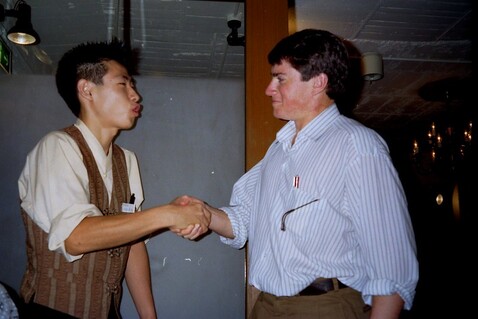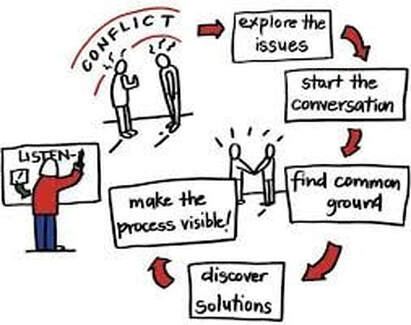Peer Mediation

Friendships shape lives. When peer interactions between friends or siblings become problematic, the resulting anxiety, stress or hurt feelings can have lasting mental, emotional or behavioral consequences. Peer Mediation, however, can help the parties involved to resolve these conflicts quickly, effectively, and confidentially through direct, open conversation guided by a neutral Peer Mediator.
What is Peer Mediation?
Peer Mediation is a form of conflict resolution that occurs between two or more peers who are classmates, roommates, neighbors, coworkers or friends; two or more siblings; or even between a teacher and a student. A Peer Mediator and the parties involved gather informally in a room, often around a table if in-person or virtually online if in-person is not an option. There are no judges- nobody who is there to make a judgment or give a consequence or punishment. With the help of the Mediator, the parties talk about the conflict with the goal of being heard by the other party and resolving the conflict in a way that satisfies all parties, often through a compromise of some kind.
What is Peer Mediation?
Peer Mediation is a form of conflict resolution that occurs between two or more peers who are classmates, roommates, neighbors, coworkers or friends; two or more siblings; or even between a teacher and a student. A Peer Mediator and the parties involved gather informally in a room, often around a table if in-person or virtually online if in-person is not an option. There are no judges- nobody who is there to make a judgment or give a consequence or punishment. With the help of the Mediator, the parties talk about the conflict with the goal of being heard by the other party and resolving the conflict in a way that satisfies all parties, often through a compromise of some kind.
Midway Mediation & Counseling
1095 Pingree Rd., Suite 221, Crystal Lake, IL 60014
(224) 333-0267 [email protected]
1095 Pingree Rd., Suite 221, Crystal Lake, IL 60014
(224) 333-0267 [email protected]
Photo from blondinrikard

